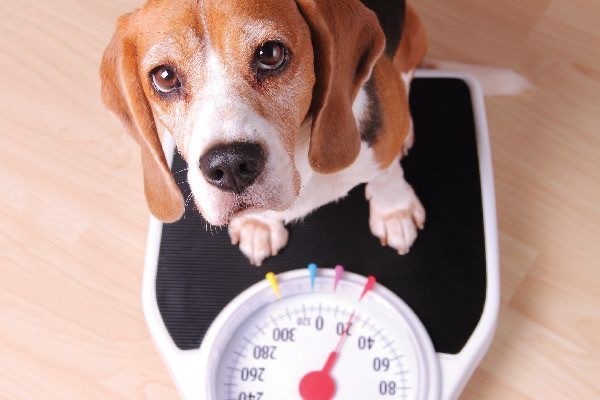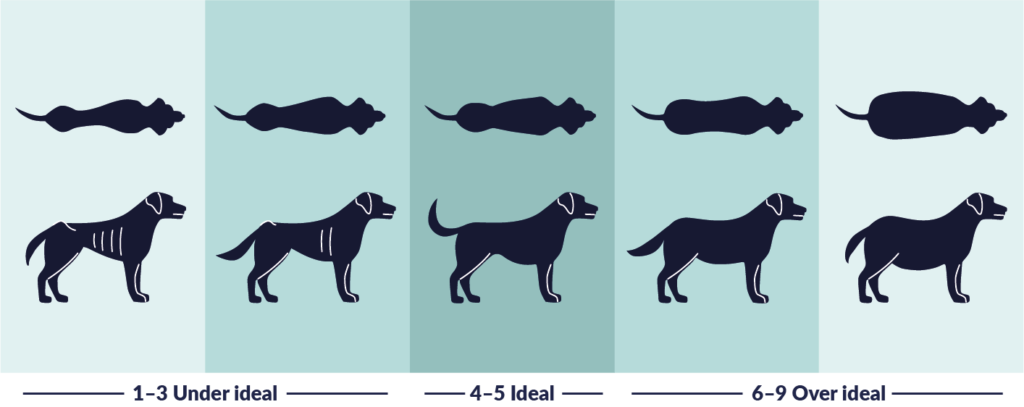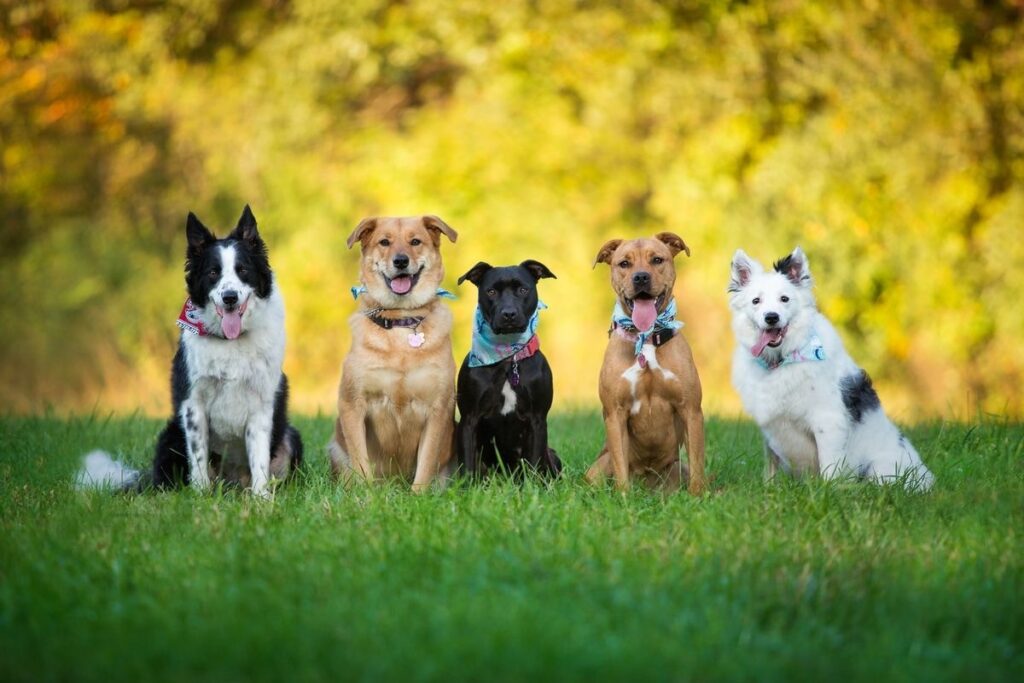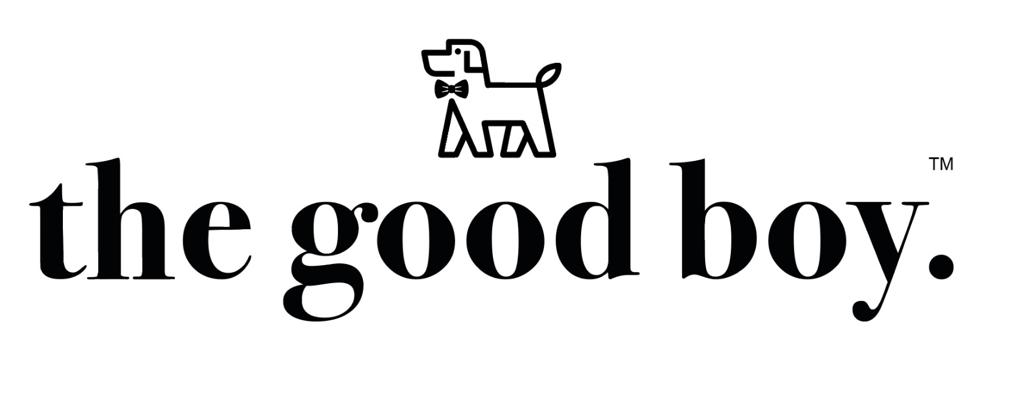How To Tip the Scales in Your Favour
As we all review our body shape, hit the gym and cut down carbs to look and feel great and have a healthy long life, it is important to look at our dogs in the same way in a critical light. Have we let them down by feeding them too much and not walking them enough?
As much as we love to spoil our pets, that extra treat or some extra food out of love every other day can have serious and detrimental effects on your dog’s health and well-being.
I think it is fair to say that most dogs love their food. Just because they love it, is not a good reason to keep feeding them.Certainly, some breeds are more keen on their food than others, but we have to be their self-control, because they will just keep eating.

Sadly, Obesity is a common problem that most pet parents have to manage these days. Not only is it an inconvenience as it won’t let your dog enjoy life as they are supposed to, but it also increases the risk of them developing a number of potentially serious conditions…
So How Do You Judge If Your Dog Is Overweight?
The important thing is to determine what is the correct weight for your individual dog. Don’t forget that your vet will always be keen to help you judge if your dog is overweight.
The starting point is to get down and give your dog a good cuddle and have a good feel over their rib cage.
Can you feel their ribs? (Really feel them?) if you can’t, then your dog is overweight. There is nothing over the rib cage of a dog other than skin and perhaps fat.
So How Do You Judge If Your Dog Is Overweight?

Use the body condition chart to determine if your dog is of healthy weight. This will give you an idea of how much work you have ahead of you.
So, why do we need to worry about the weight of dogs? They always love us when we feed them and always want more.The reasons are virtually identical to the hazards of obesity in humans.
THE PRINCIPAL RISKS OF DOG OBESITY
#1. Reduced quality of life and reduced lifespan. We all want our dogs to live for as long and as well as possible, so why are we so intent on feeding them too much? It is conclusively shown that obesity sets us and our pets up for higher rates of cancer, and also damages so many internal organs like the liver.
#2. Increased risks of Arthritis. A very common condition in senior dogs. Certainly, we have some amazing medicines that can help relieve the signs of arthritis, but without exception, reducing the weight of a pet will make an enormous difference.
#3. Increased risk of acute joint damage. Nature designed dogs to have ligaments and tendons strong enough for their bodies. If the body is too heavy, then the risk of ligament damage is vastly increased. Ligament injuries are expensive to fix, and yet are much less likely to rupture in slim dogs.
#4. Diabetes. As in the human population, diabetes is a common and significant result of obesity. Too much blood sugar overwhelms the kidneys and it flows into the urine drawing water with it. A diabetic dog urinates away a lot of energy rich urine, so it is both hungry and thirsty, and loses weight.
WHAT CAUSES WEIGHT GAIN?
Weight gain is the result of an increase in body fat. This is usually caused by feeding too much or a decrease in exercise and in many cases it’s a combination of both. But there can be other contributing factors too, such as-
- AGE – Older dogs are less active, have less energy, and require fewer calories, which is why nutrition formulated for his age is vital to his weight and overall health.
- OVERFEEDING – Dogs with unlimited access to food understandably eat more than they need — this includes table scraps and extra treats from family members.
- QUALITY OF FOOD – Many commercial foods are processed and loaded with salt and fat. This improves taste, which means your dog will usually love it, but it won’t love them back.
- BREED – Some dog breeds are typically more food motivated and less active than others making them more likely to gain weight.
- MEDICAL PROBLEMS – Weight gain can be associated with medical disorders that may require veterinary treatment.

#5. Reduced exercise capacity. Surely one of the greatest joys of having a dog is watching it run fast and free. Overweight dogs are not just carrying more fat on the outside, they have more on the inside, too. Any overweight dog is not only carrying more weight, but it has less capacity to absorb oxygen. It is also compressing the lungs, extra fat will compress windpipeand airways and make dogs that have airway challenges struggle to breathe.
TIPS FOR HEALTHY WEIGHT LOSS IN DOGS
The Good News Is That There Are Lots of Ways to Help Your Dog Lose Weight.
As important healthy weight is for a dog, losing weight can harm their health too if it’s not done right. This is why you should always follow the healthy weight loss tips below.
Speak to your vet first
If you think your dog is overweight, speak to your vet first.This is important as the vet will help u to identify if there is any underlying medical reason for the weight gain.
Don’t rush it!
Fast weight-loss diets are extremely popular amongst humans. Healthy weight loss, however, takes time and that’s especially true for dogs. Quick weight loss can cause nutritional deficits, behavioural problems and serious illness in dogs. To set realistic expectations, your pooch shouldn’t lose more than 1-2% of its weight in a week.
Encourage exercise and play!
Dogs are designed to run, walk and play. They love it and we should do everything we can to encourage them to move. Ideally, a dog should be walked at least twice per day. If that isn’t possible, throw a ball, play with them and get them moving as much as you can.
Schedule mealtime.
If your dog is a grazer, change to set mealtimes with no food left out during the day.
This will set up a healthy routine and help your dog to expect food only during the set mealtimes.
Cut back on treats.
Treats are great for training, maintaining obedience and showing your love. But they should be shared in moderation.Either feed fewer treats or switch them out for organic, homemade or unprocessed treats.The fewer calories you feed in treats, the more effective dog dieting will be.
Increase the quality of food.
feed your dog the highest quality of food you can.High-quality food will contain more meat, more whole ingredients and more nutrition. It will also contain fewer calories, less fat and fewer filler ingredients.It’s ideal for dog dieting and will also improve your dog’s overall health and well-being. We strongly recommend to try our perfectly balanced meals from The Good Boy.
The Good Boy is freshly made, human-grade and designed to cater to the dietary needs of your dog’s breed.
Help with hydration.
Regular drinking aids digestion and helps flush out toxins that may build up, which can cause kidney or urinary tract disease. Always keep fresh drinking water available in reach for your dogs.

Small and frequent meals
Instead of free feeding your canine friend, you should try to split up the entire quantity of food they’re supposed to have daily into three or even six small meals.
Besides keeping your dog full throughout the day, this technique can also help prevent serious health problems such as bloating.If you decrease the amount of food that your dog should have every day by just 5-7%, you’ll gradually see changes in your pet’s weight.
Tips and Tricks
Make swaps where you can e.g., try swapping your pets treats for a carrot. Rather than letting your pet hoover their biscuits straight from a bowl, disperse their food over a large area or use a treat ball to make them work for it!
Lorem ipsum dolor sit amet, consectetur adipiscing elit. Ut elit tellus, luctus nec ullamcorper mattis, pulvinar dapibus leo.
Keep your expectations realistic.
Your dog has to lose weight in a sustainable and healthy way, even though it may take several months. Losing weight fast isn’t healthy for humans or pets, so keep that in mind.
You also have to consider several other factors, such as your dog’s age and health status. Senior dogs have a harder time losing weight compared to adults because they might suffer from chronic conditions but also because they have a much slower metabolism.
If your dog is recovering from trauma or surgery and can’t move properly, you can’t expect them to be overly enthusiastic about running around all day.
Being overweight is not a dog’s natural position. They much prefer to be lean, run, play and be active. So, if your four-legged friend is overweight, we strongly encourage you to make a change. Dog dieting and encouraging healthy changes mentioned above are not difficult . Do it well and your dog will have fewer health issues, will be even more willing to have fun with you and – most importantly – will live longer.




